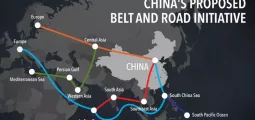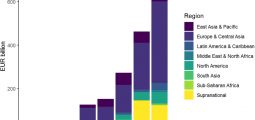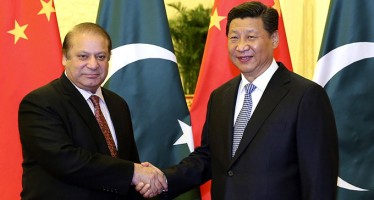World Bank Group: Remittances – A Vital Channel for Global Cash Flows
 Envision the world economy as a complex, interconnected array of financial engines whose propulsion helps reinforce one another’s momentum. One of the component engines is a small but significant one that, until a few years ago, was not recognised for the powerful contribution it makes to the global financial system.
Envision the world economy as a complex, interconnected array of financial engines whose propulsion helps reinforce one another’s momentum. One of the component engines is a small but significant one that, until a few years ago, was not recognised for the powerful contribution it makes to the global financial system.
Sustaining the welfare of about 700 million people around the world – and representing the only source of income to provide food, healthcare, housing, and education to millions of families – this small-engine-that-could sometimes also powers the creation of family-run businesses and entrepreneurial ventures. This engine may seem relatively small, yet its sustained output has supported the growth of the overall global economy, lifted entire regions out of poverty, and eased the burden on governments to provide social benefits by allowing hard-working families to generate their own incomes.
The engine described is remittances – the person-to-person, low-value and (mostly) cross-border cash transfers that migrants send home to their families. These financial flows are generated by enterprising migrants who have accepted jobs in wealthier countries – or in the more dynamic regions of their home country – and who make patient, often arduous efforts to squeeze savings out of already tight budgets.
“The engine described is remittances – the person-to-person, low-value and (mostly) cross-border cash transfers that migrants send home to their families.”
Money is sent back home to relatives and friends through an array of methods – ranging from sophisticated electronic payment services to unregulated bargaining with bus drivers and friends. Each of these remittance mechanisms exacts a cost, through the need to convert currencies, maintain electronic systems, or remunerate the various layers of intermediaries who take part in the transfer chain.
Implications
Because of the importance of remittances to 700 million people or more worldwide, international financial experts are increasingly focusing their attention on the most vital implications of worldwide remittance flows. The cost of such transfers has been an important issue on the G8 and G20 financial agenda since about 2006, and a great deal of progress has been achieved in helping migrants save money by using more efficient and lower-cost remittance-sending services.
The World Bank estimates that, since 2006, about $54 billion has been saved by remittance-senders thanks to the global effort for the reduction of remittance costs. That sum is equivalent to the entire gross domestic product of countries such as Costa Rica or Tunisia.
For many millions of hard-working people and their needy families, remittances are often the only potential access-point for any type of financial services. Remittances, in fact, are often the gateway to the financial world for both remittance-senders and beneficiaries.
Nonetheless, those who advocate greater financial inclusion note that only a small percentage of remittance flows generates a “butterfly effect,” leading to the expansion of financial-services use that goes beyond the simple remittance transaction itself. As the need has grown for specialised services that meet the needs of both senders and beneficiaries, the financial sector has risen to the challenge and created more efficient pathways for transferring money across borders.
However, an additional, and more worrisome, factor has recently made the remittances issue even more complex. Over the last 18 months or so, major commercial banks worldwide have decided to “de-risk” their operations in an attempt to reduce their chances of falling prey to any possible money-laundering scheme or of tolerating any pathways that might allow money to reach terrorist organisations. This development had a serious impact on the global flow of remittances.
Banks Essential
Banks play an essential role in the transfer chain that allows, say, someone in Los Angeles to hand over $200 cash at a money-transferring storefront and have the equivalent sum – about $1,500 Guatemalan quetzals – delivered, within seconds, to Chiquimula, Guatemala. Without the active participation of the banking industry in the clearing and settlement of transfers along the various steps of the international cash-transfer process, many money-transfer operators would be unable to operate. A reduction in the number of operators would have a dramatic impact on the level of competition which, in turn, would increase the overall cost of remittances to many developing economies.
Banks surely consider many factors when deciding whether or not to back away from the remittances market. A common denominator is the concern for attracting deeper scrutiny to operations and, thus, face exposure to potentially severe penalties for possible violations of anti-money laundering (AML) laws and measures on combating the financing of terrorism (CFT).
To reduce such risks, many banks have abandoned the remittances market, gauging that the modest amount of revenue they might obtain do not justify the cost of ensuring compliance, as required by regulatory entities, with restrictive legal frameworks. Yet, as many banks withdraw from the remittances market, they are also removing crucial transactional capabilities from the marketplace – thus making it more difficult – and more expensive throughout the entire system – to transfer money.
Due to the shrinking number of banks involved in international money-transfer operations, more and more operators are “being driven underground.” These operators now seek solutions that are barely legal – and, ironically, often use systems that are too complex to be properly monitored by AML/CFT watchdogs. Paradoxically, the attempt to avoid AML/CFT violations is triggering an even more acute crisis throughout the international money-transfer system, exposing countries to the risk that ever-larger part of their cash flows are taking place in less-transparent and less-monitored circuits and instruments.
Concern
As a result, the tightening-up of the international cash-transfer system may result in less efficiency and higher costs. Remittances may become more expensive and offer fewer opportunities to the people who most need access to safe, formal, affordable financial services: the poor of the world.
International organisations and standard-issuing bodies like the G20, the World Bank, and the Financial Action Task Force are concerned about this problem. They are working with governments that seek to safeguard the integrity of their markets even as they recognize the need for remittance-flows to continue reaching their destination in safe, lower-cost ways.
The financial industry is similarly focused on continuing to serve their customers with well-regulated, well-monitored payment systems, thus preventing flows of remittances from being diverted into ill-regulated underground channels.
The international remittances system is facing increasing complexities, but regulatory and standard-setting institutions are committed to continue to work in tandem with the financial industry to avoid the danger that the international cash-transfer system may suffer a costly contraction. As standard-setters and industry leaders consider measures to keep the remittances system flowing smoothly, they should remember the important stabilising role played by multibillion-dollar cross-border transactions in ensuring global financial security as well as the vital human role that remittances play in helping hard-working migrants, toiling far from home, support their needy families in impoverished economies that desperately need capital for day-to-day survival. i
About the Authors
Massimo Cirasino is the World Bank Group manager for Financial Infrastructure and Access and head of the Payment Systems Development Group.
Carlo Corazza is a Senior Payment Systems Expert in the Finance and Markets Global Practice of the World Bank Group.
You may have an interest in also reading…
Proposed China Pakistan Economic Corridor: With a Price Tag of $46 billion
China’s president Xi Jinping arrived in Islamabad on Monday 20 April for talks with Pakistani president Nawaz Sharif, to address
President Trump: Math Is Hard
Since 1990, when his landmark Taj Mahal casino and hotel defaulted on interest payments to its bondholders, businesses owned by
CFI.co Meets the President and CEO of SunTec Business Solutions: Nanda Kumar
Nanda Kumar, President and CEO of SunTec, has taken corporate business process management to a new level of dynamism and


























































































